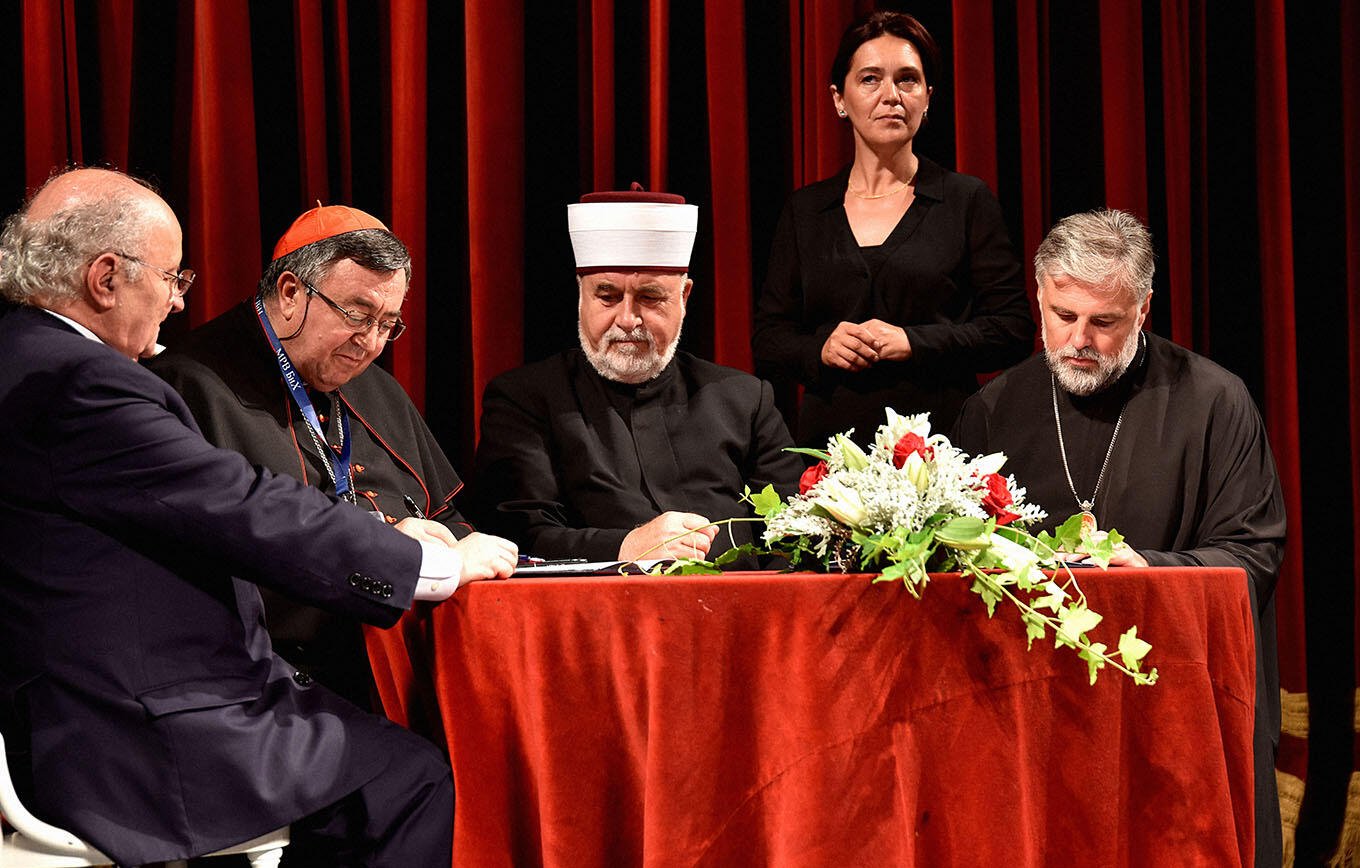SARAJEVO — For many of the uncounted survivors of sexual violence during the 1992–1995 war in Bosnia and Herzegovina, the trauma they suffered is compounded to this day by the stigma they still face in their own families and communities.
“Whenever I go to get my state aid, my next-door neighbour asks me if that’s the aid for the raped persons. It makes me want to die of hunger rather than go get the aid, just so they could all leave me alone,” one anonymous respondent said in a UNFPA survey on the stigmatization of conflict-related sexual violence survivors.
Others reported being blamed by their own relatives for the abuse they endured, or having neighbours spit on them and throw rocks at them as they pass by.
But this month, faith leaders took a strong stand against such social exclusion, marginalization and discrimination. The Inter-religious Council in Bosnia and Herzegovina, representing Muslims, Orthodox Serbs, Catholics and Jews, issued a landmark declaration that condemned sexual violence as “one of the most severe crimes committed in conflict”; denounced the stigmatization of survivors; and called for “constructive cooperation…in order to improve the status of survivors in Bosnia and Herzegovina today”.
The declaration was welcomed by UNFPA, which has been working with the Inter-religious Council to raise awareness about the issue, and by the Government of the United Kingdom, which is the main donor for the latest phase of the Joint UN Programme on addressing conflict-related sexual violence.
“We must all show survivors that we are there for them and care for them, and that we don’t judge them,” said Doina Bologa, UNFPA Representative for Bosnia and Herzegovina. “Stigmatization of survivors is one of the main obstacles to their reintegration in society, and it is our obligation to alleviate this as much as possible.”
The declaration by the Inter-Religious Council, made on the 20th anniversary of its founding, helps to address “one of the most painful legacies of the terrible conflict of the 1990s by sending a clear message that no shame or guilt should attach to the innocent victims of sexual violence”, UK Foreign Secretary Boris Johnson said in a statement. “Only the perpetrators of these wicked crimes should feel the sting of opprobrium and stigma. Those who suffered at their hands must never be inhibited from asking for help or providing the evidence that will allow justice to be done.”
The UK has provided financial support to UNFPA since it began to implement programmes to address conflict-related sexual violence in Bosnia and Herzegovina, including stigma-alleviation activities covered under the UN Joint Programme.
UNFPA’s work with religious communities in Bosnia and Herzegovina includes partnering with faith-based organizations in providing direct counselling to survivors of sexual violence, their families and entire communities as a way to foster acceptance, non-discrimination and a sustainable reduction in stigmatization. It is also working with media outlets in Bosnia and Herzegovina to ensure more sensitive and non-discriminatory reporting on the issue.
UNFPA is meanwhile building the capacities of health and psychosocial service-delivery professionals within public institutions and civil-society organizations in Bosnia and Herzegovina to provide holistic support to survivors and their families. It is training doctors, physicians, nurses, psychologists, psychiatrists and other healthcare workers to be better able to assist survivors in their efforts to overcome trauma, and reintegrate into society.


